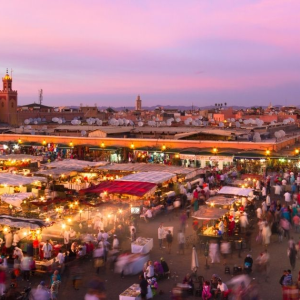Dubai is a city of dreams for many professionals. But what happens if you lose your job or stay in Dubai without employment? Whether you’re between jobs or planning to remain in the country without working, there are some essential rules and consequences you must understand.
The UAE government has strict regulations about residency, employment, and visa validity. Staying in Dubai without a job doesn’t necessarily mean immediate trouble, but it does require careful planning. Here’s a complete breakdown of what happens if you remain in Dubai without employment and how to avoid legal or financial issues.

1. Your Employment Visa Will Be Cancelled

The first thing to understand is that in Dubai (and the UAE), your right to stay in the country is often tied to your employment visa.
If you lose or quit your job:

- Your employer is legally required to cancel your residence visa within a short period
- You will have a grace period to either leave the country, get a new visa, or change your status
As of the latest update, the UAE offers a grace period of up to 180 days (depending on your visa type and job category) after visa cancellation.
Important: You can’t legally stay beyond your grace period unless you get a new valid visa.
2. Overstaying Is Illegal and Comes with Penalties
If you remain in Dubai beyond your grace period without getting a new visa, you are considered an overstayer. This can lead to:
- Daily fines (AED 50 per day or more)
- Blacklisting, which affects future visa applications
- Detention or deportation in serious cases
- Trouble exiting the country or re-entering in the future
To avoid this, always monitor your visa status and either leave on time or switch to a new visa legally.
3. You Can Stay if You Switch to a Different Visa
Losing your job doesn’t mean you have to leave Dubai right away. The UAE provides several options for people who want to remain in the country after job loss. These include:
a. Freelance Visa:
If you have a skill or profession that allows remote work (writing, design, coding, marketing), apply for a freelance visa. It allows you to legally live and work in Dubai independently.
b. Investor Visa:
Planning to start a business? Apply for an investor or partner visa. This gives you residency even if you don’t work for anyone else.
c. Golden Visa:
If you meet certain criteria (high income, investments, talent), you can apply for a 5 or 10-year Golden Visa that isn’t tied to a job.
d. Remote Work Visa:
Work for an overseas company while living in Dubai through this visa. You must prove you earn a minimum monthly income.
e. Family Sponsorship:
If a spouse or parent works in Dubai and meets the income requirement, they can sponsor you.
These alternatives can help you stay legally in Dubai without formal employment.
4. Financial Planning Is Crucial
If you’re without a job, you must be prepared to handle the cost of living. Dubai is an expensive city — especially in terms of rent, transportation, and healthcare.
You should have:
- Emergency savings to cover 3–6 months of expenses
- A budget plan to reduce unnecessary spending
- Health insurance (mandatory even for non-working residents)
- An exit plan in case you can’t find a new job or visa
Many people assume they can find another job quickly, but depending on the job market, it might take months.

5. You May Lose Certain Benefits
Once your employment ends, you might lose access to certain things that were tied to your job:
- Health insurance — typically canceled by the employer
- Company housing or allowances
- School fee support (if your company covered it)
- Access to some financial services or loans
Before your visa is canceled, try to handle as many personal matters as possible — like closing any work-related bank accounts, transferring housing leases, or settling bills.
6. You Can Take Up Part-Time or Temporary Work
If you don’t have full-time employment but want to stay in the job market, you can explore part-time permits. UAE’s labor laws allow individuals to take up:
- Temporary contracts
- Freelancing or consultancy projects
- Permits from free zones (which allow flexibility)
This not only gives you income but also keeps you engaged while looking for your next full-time role.
7. Mental and Emotional Impact
Job loss and unemployment can be emotionally draining — especially in a foreign country where your legal stay is connected to your employment.
To cope:
- Stay connected with your professional network
- Join community groups and expat forums for support
- Take the opportunity to upskill, learn, or pivot careers
- Maintain a routine and stay positive about your future options

8. Leaving the UAE and Re-Entering Later
If you don’t have the means or desire to stay, it’s perfectly acceptable to leave the country and return later when a new opportunity arises. Many professionals exit after a job loss and come back later with new offers.
Before you exit:
- Close any active accounts or subscriptions
- Get your end-of-service benefits
- Cancel your visa properly
- Get reference letters or documentation for future employment
9. End-of-Service Benefits
By UAE labor law, you are entitled to gratuity pay after completing one year or more of service with your employer. This is your right and must be calculated based on your basic salary and tenure.
It’s usually:
- 21 days’ salary per year for the first 5 years
- 30 days’ salary per year beyond 5 years
This can give you some financial relief while transitioning.
10. Avoid Illegal Work or Fake Visas
It’s tempting for some to continue working without a visa or accept shady offers. But working without proper documentation is illegal and punishable in Dubai.
Never:
- Work on a tourist visa
- Accept under-the-table cash jobs
- Overstay without reporting or applying for a visa change
These actions can lead to jail, fines, and permanent bans.

Conclusion: Know Your Rights, Plan Smart
Staying in Dubai without a job is not the end of the road — but it comes with time-sensitive decisions. As long as you act within your grace period, apply for alternative visas, and stay informed about your options, you can legally remain in the UAE even without employment.
The key is planning, understanding your legal options, and staying proactive. Many have successfully transitioned from job loss to freelancing, investing, or even early retirement in Dubai. With smart steps, you can too.
Do follow UAE Stories on Instagram
Read More: Top 5 Reasons to Consider Dubai for Expanding Your Trading Businessn













